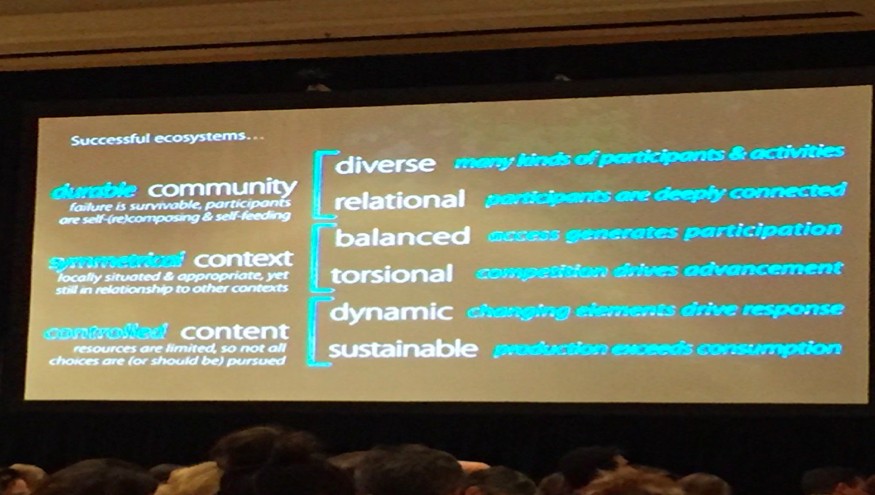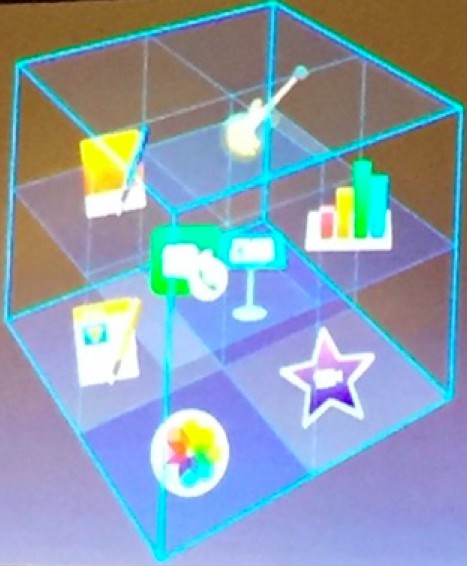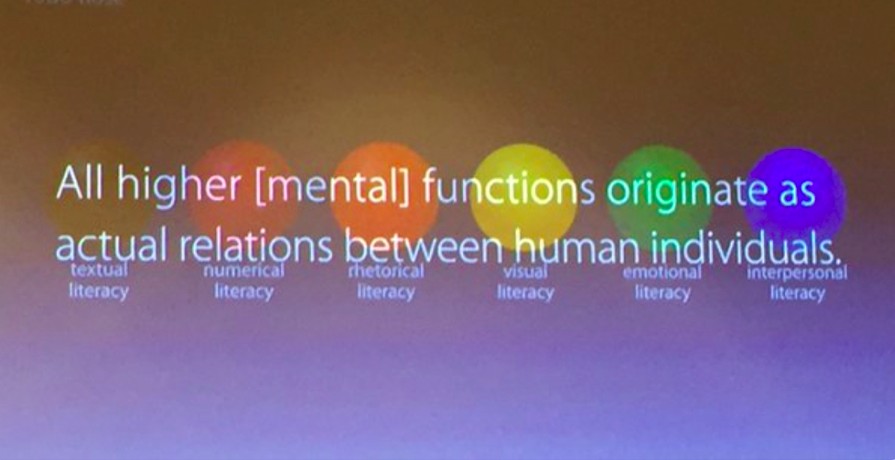La conférence d’ouverture de l’événement uLead sur le leadership scolaire, tenu à Banff du 24 au 27 avril 2016, a été prononcée par William Rankin, directeur de l’apprentissage chez Apple. Notre collaboratrice en fait un résumé.
Le sommet uLead regroupait des directeurs, des conseillers, des ministres de l’Éducation et des chercheurs provenant de plusieurs pays. Tous les ateliers et les conférences visaient à fournir des outils en vue de répondre aux attentes d’aujourd’hui en explorant les nouvelles tendances en matière d’éducation.
D’entrée de jeu, William Rankin, directeur de l’apprentissage chez Apple, a comparé l’efficacité de l’apprentissage à celle d’un écosystème :
- dans lequel s’épanouit une communauté durable par la diversité des individus et des relations ainsi que par la profondeur des relations qui y sont présentes;
- dans lequel le contexte est réflexif et génère l’implication de tous les individus de façon équilibrée, implication motivée entre autres par une saine compétition;
- dans lequel le contenu est contrôlé par une dynamique de changement perpétuel et où la consommation ne dépasse jamais la production;
- dans lequel la technologie doit occuper une grande place puisqu’elle reflète l’évolution de la société passée, actuelle et future.

En intégrant les TIC à l’éducation, Rankin rappelle qu’il incombe de maintenir ce précieux équilibre entre consommation et production. À son avis, les TIC n’apporteront aucun avantage à un groupe centré sur une même tâche, une même image, etc. Son impact constructif se décuplera lorsqu’on exploitera la collaboration et la complémentarité des membres d’une équipe.
Ceci m’amène à l’importance de développer des compétences variées pour chaque élève. Voilà pourquoi l’école devrait permettre à l’élève de prendre conscience de ses forces et de les développer pour en faire bénéficier l’équipe avec laquelle il travaillera. Car la qualité d’une équipe reposera sur la somme des forces mises en relation efficace. Une équipe de travail efficace sera complémentaire. Nous devons donc former des apprenants multidimensionnels et aptes à collaborer plutôt que des répondants à une matrice commune. Tout le paradigme de l’évaluation est alors à revoir, comme le soulève Todd Rose dans cette entrevue accordée à HarperAudio.

Rankin propose de revoir le modèle actuel d’évaluation uniforme et standardisé en se référant à un sac de friandises M&M. Le contenu du sac est délicieux et personne ne s’attarde à la proportion des couleurs qu’on y retrouve. La somme importe plus que le détail du contenu. De la même façon, le cerveau développera des compétences en étant en relation avec d’autres. Les compétences de chacun offriront une compétition saine et constructive, offrant un climat propice aux apprentissages durables et efficients.

Il faut donc orienter l’apprentissage autour de l’atteinte d’objectifs finaux en passant par des avenues différentes, permettant à l’apprenant de recommencer encore et encore pour s’assurer de la meilleure voie à emprunter pour résoudre le problème. Aussi, Rankin remet à l’avant-plan la part importante du partage de l’apprentissage avec son entourage. Partager sa réussite, ses découvertes, ses questions, ses erreurs! Par ailleurs, il rappelle que dans une situation d’apprentissage, l’erreur n’est pas une option, mais un défi essentiel pour avancer et construire sur du solide. L’école devient donc une communauté d’apprentissage qui pourra étendre ses tentacules, et donc sa force, grâce aux technologies qui favorisent la collaboration, le partage, la communication, etc.
Les TIC sont finalement un incontournable outil pour le leader d’aujourd’hui et pour former le leader de demain.




 Recevez l'Info #DevProf et l'Hebdo pour ne rien manquer des nouveautés de l'École branchée!
Recevez l'Info #DevProf et l'Hebdo pour ne rien manquer des nouveautés de l'École branchée!




